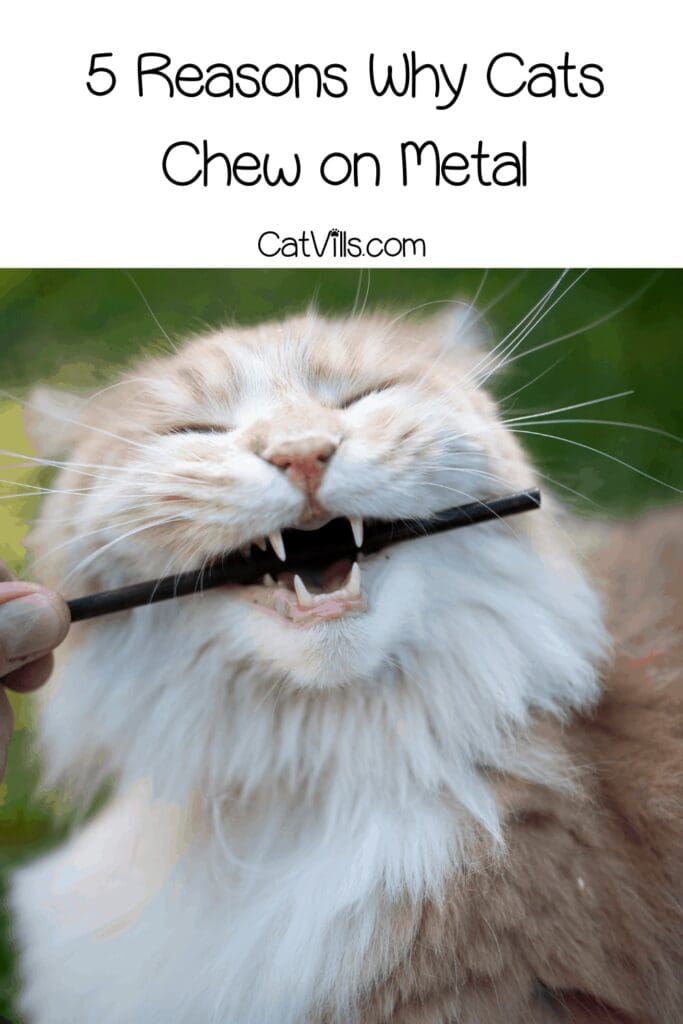Last Updated: 1 year ago
Why does my cat chew on metal?
Is your cat chewing your jewelry, zippers, electric cords, or other shiny or metallic items within your house?
There are several reasons why your cat exhibits this strange behavior.
And unfortunately, some are serious health issues, and the metal makes it worse once it’s ingested.
Let’s find out what’s behind it and what we can do to keep the kitty safe.
Why Do Cats Chew On Metal?
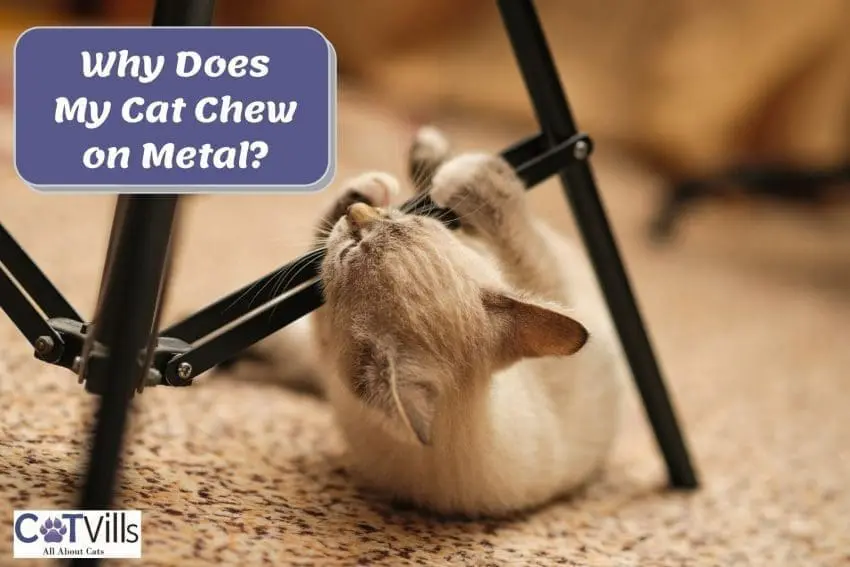
So why exactly is your cat chewing on metal? Let’s start with the obvious answer: kittens are often attracted to shiny objects.
That’s why they may be chewing on your jewelry and other shiny metallic objects.
However, the cat could also be suffering from pica, a condition that makes cats and other animals chew on non-food objects.
Other possible causes include behavioral disorders, dental diseases, or mineral deficiency.
In this article, I explain in detail why your cat may be attracted to metal and how to stop them.
5 Reasons Why Cats Chew On Metal
Cats are highly curious and intelligent creatures. They will be fascinated by any shining object, be it jewelry, metal, or electric cords.
Some may even be fascinated by plants. Once they spot such an item, they will want to play with it. Sometimes they will treat it as prey.
That’s why you’ll see kittens stalk and even pounce on the object, assuming it was a rat.
This is normal behavior, but there could be other underlying medical issues that need to be treated. Below are some of them.
#1 Dental Disease
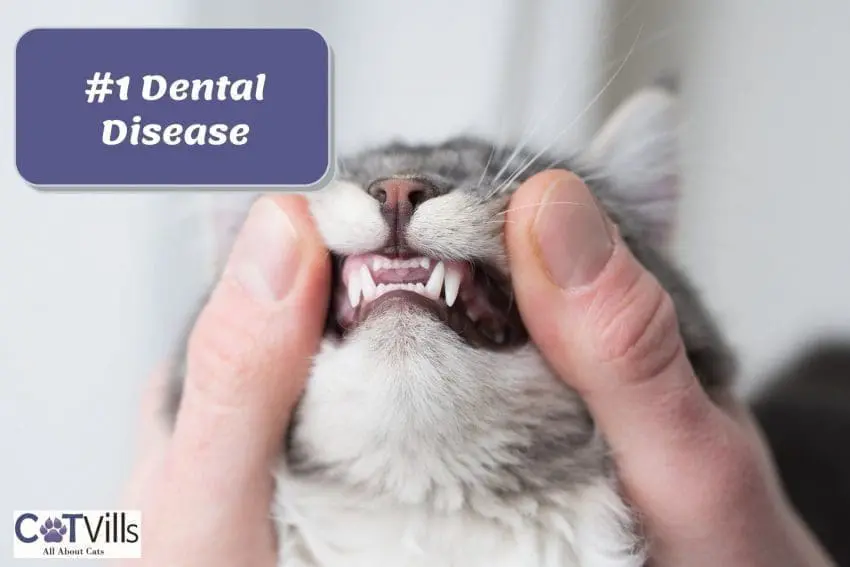
Cats with dental issues may chew on metal objects to soothe their teeth from pain or discomfort.
These issues include gum disease, periodontitis, tooth resorption, and gingivitis.
Most of these diseases can be treated using cat-friendly toothpaste and a feline toothbrush.
#2 Obsessive-Compulsive Disorder
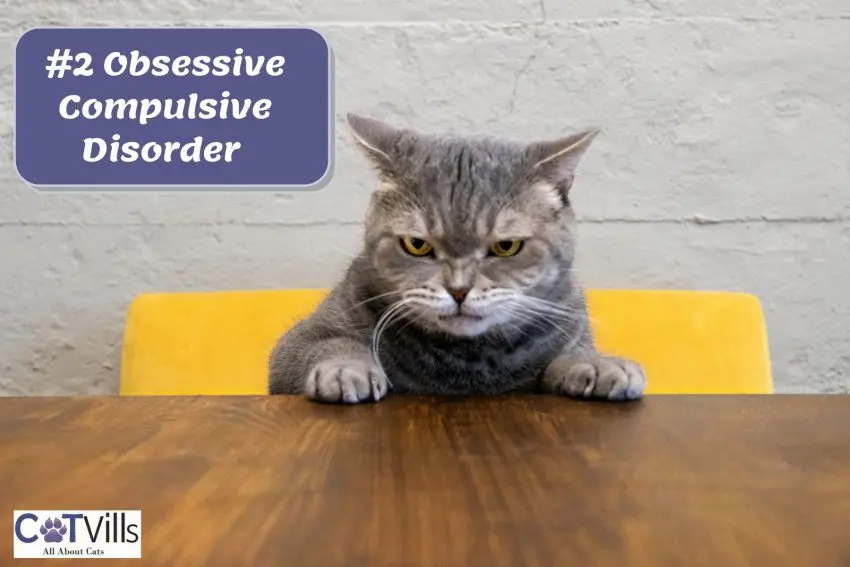
Some cats may be suffering from a compulsive disorder.
This is where they resort to destructive behaviors like chewing metal, electric wires, or even furniture.
Other signs of the compulsive disorder are over-grooming and aggressive and repetitive vocalizing.
This disorder has to be treated. Otherwise, it could get worse to the point where they engage in self-mutilation or self-harm.
#3 Behavioral Disorder
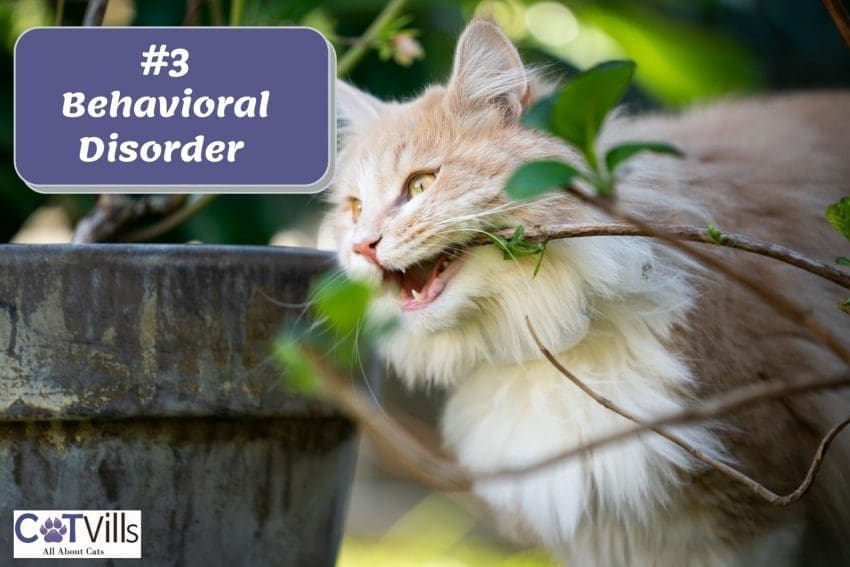
Sometimes cats chew on stuff out of boredom. Below are some of the reasons your cat is exhibiting behavior issues.
Depression
A cat may be depressed due to losing a kitten, pregnancy, or because you’re leaving them.
For instance, Siamese cats can be quite aggressive when they know you’ll be leaving them for a whole day.
Idleness
As mentioned earlier, cats are active and highly energetic. They need to engage in physical activity.
If they don’t, they may resort to chewing on various items. They may be sacred or have been hurt by a neighbor’s cat or a stray cat.
Introduction to a new environment
If you moved to a new place, changed the cat’s routine, or added a new member to the family, your cat may feel stressed.
And chewing is one of the ways they cope with such changes.
#4 Mineral Deficiency
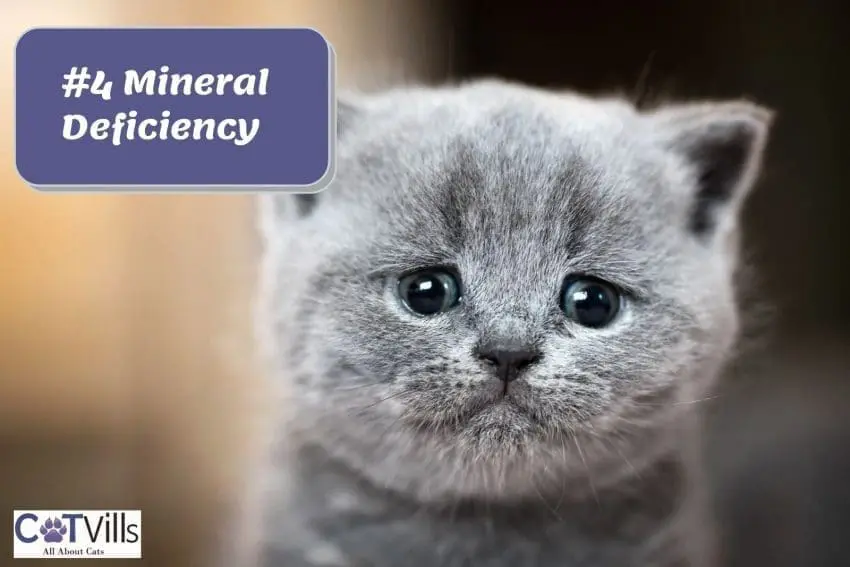
A cat should get all the nutrients from its food. However, some foods don’t have some of the important minerals in the right quantities.
For instance, a highly active cat may need more protein (iron) than sedentary cats.
If they can’t get all the nutrients from the food you feed them, they may try to find them in metal and other non-food objects.
As a pet owner, you should find out your cat’s needs and find foods with the right formula or foods that will meet the cat’s nutritional needs.
You can also consider feeding the cat supplements if they crave a specific mineral.
#5 PICA in Cats
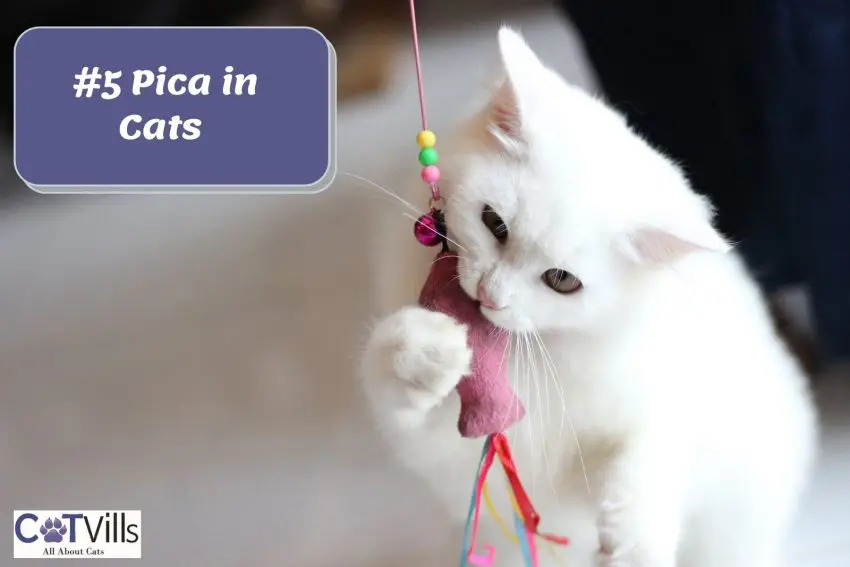
Feline PICA is a condition where cats crave items with no nutritional value. These items include metal, wood, paper, wool, houseplants, and plastic.
Cats may have developed this issue when trying to cope with the medical and behavioral issues I mentioned above.
Even though PICA is more common in kittens, adult cats can also develop this condition. Siamese cats seem to be more affected by this condition.
Other breeds that are more susceptible include Tonkinese and Burmese.
So, besides medical conditions, PICA appears to be genetically passed down among most Oriental cat breeds.
Symptoms of PICA in Cats – Should I Be Concerned?
Cats suffering from PICA tend to chew on any of the items aggressively.
Some pet owners have reported that they could hear the sound of the cat’s teeth breaking into the materials.
They also noted that cats with PICA would also go to great lengths to find the specific material they prefer.
While some may opt for metal, others will opt for softer materials like wool, which is then ingested like food.
It’s necessary to liaise with your veterinarian on ways to treat Pica in cats as soon as possible.
Since it’s a behavioral issue, they may prescribe anti-depressants or advice on other ways to treat behavior disorders.
Is Metal Bad For Cats?
Metal can’t be ingested. Below are some of the problems it may cause;
- It may cause blockages in the gut that may need surgery.
- It may cause other digestive issues such as constipation and diarrhea.
- Some cats are allergic to nickel, among other metals. Some symptoms of metal allergies are lesions in the cat’s mouth, skin irritation, watery eyes, over-grooming, and intense scratching.
- When they chew on electric cords, they could get shocked.
6 Ways to Prevent Cat chewing on metal
Below are some ways to prevent your cat from chewing on metal.
#1 Keep metal out of reach
Hide jewelry and other metallic objects in areas where your cat can’t reach.
#2 Redirect chewing behavior
Get him or her a chewy toy.
Since they love chewing, there are several softer and safer chewing toys available that can distract them from harmful materials.
#3 Train your cat to leave it alone
Teach them that chewing metal is bad, and reward them with treats when they follow your instructions.
Clicker training is quite effective, where the pet owner uses a device to make a sound every time the pet performs as expected.
#4 NEVER physically punish your cat
Never, ever, ever physically “punish” your cat for chewing on metal. Instead, use gentle yet effective verbal techniques, like making a high-pitched sound.
Spraying a kitty with a spritz of cool water is also acceptable. Yes, it falls under “physical,” but it’s more of a deterrent than a punishment.
Just a few sprinkles, and with time, they’ll learn to avoid chewing, scratching, or any other behavior you want them to stop.
#5 Make the metal less appealing
Wrap the metallic areas with aluminum foil or double-sided tape. Most cats hate that texture.
You can also spray all metallic objects with a citrus scent, an effective deterrent against cats.
#6 Keep kitty entertained
As mentioned earlier, sometimes a kitty chews metal out of boredom. So, find better ways to keep her entertained!
Engage your cat in physical activity, like a rousing game of fetch (yes, cats can fetch). This helps kill boredom.
Wrap-Up
Long story short, if your cat chews on metal, your very first call should be to your vet.
None of this is meant to be taken as medical advice. Your cat’s health is too important to take shortcuts.
Once you do find out the cause, though, one of the methods above will help you put a stop to the strange behavior.
Does your cat chew on metal? What did your vet say about the cause? Share your experiences below!
